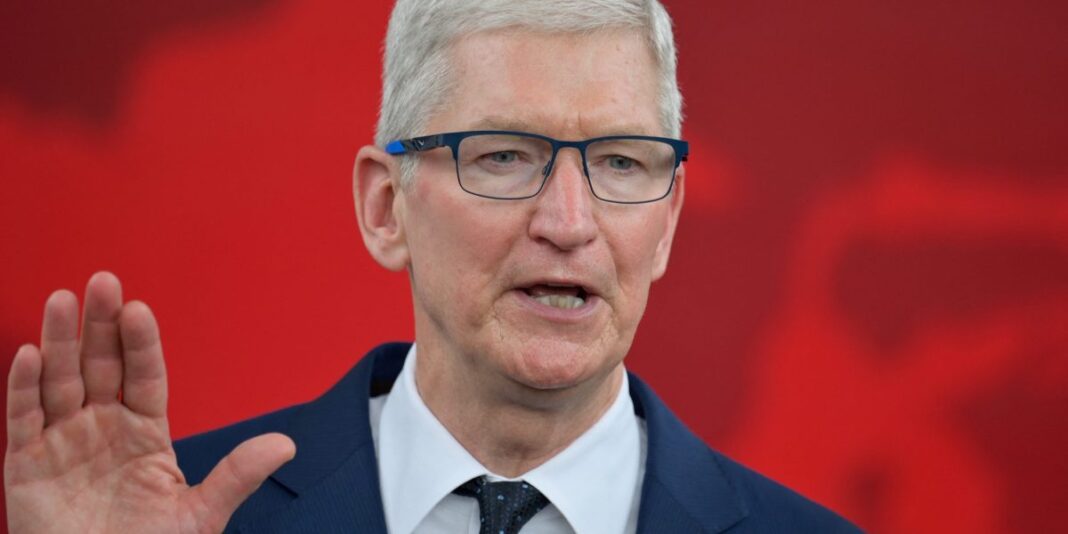“Cook’s Crucible: Apple CEO Tim Cook Faces His Biggest Challenge Yet as Tariff Tensions Reach a Boiling Point” As the tech world continues to grapple with the ripple effects of a global trade war, one executive stands at the forefront of the maelstrom: Apple CEO Tim Cook. In a career marked by unprecedented growth and innovation, Cook is now facing his most daunting moment yet – navigating the treacherous waters of a tariff meltdown that threatens to upend the very fabric of his company’s supply chain. With the stakes higher than ever, the question on everyone’s mind is: can Cook’s leadership and vision save Apple from the toxic fallout of a trade war that’s showing no signs of abating? In this exclusive piece, we’ll take a closer look at the challenges facing the Apple CEO and why his past experience might just be the key to unlocking a successful strategy in this uncharted territory.
The Consequences of Forcing Domestic Manufacturing
Examining Trump’s Plans and Their Potential Impact on Apple
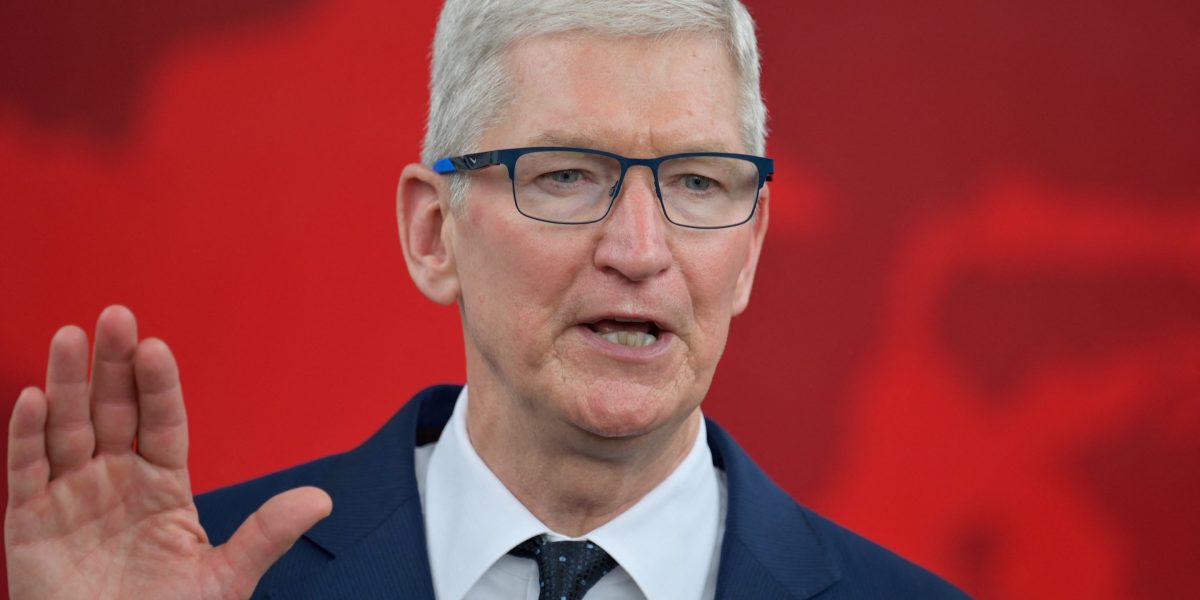
President Trump’s aggressive tariff policies have placed the tech industry, particularly Apple, in a precarious position. The United States’ current administration has hinted at plans to compel Apple to manufacture its iPhones within the United States, a move that could have far-reaching implications for the company. According to Unionjournalism analysis, if Apple were to comply with such a directive, it would likely result in a significant increase in production costs, affecting the company’s pricing strategy and potentially leading to a substantial rise in the final product price. This could, in turn, impact consumer demand and ultimately affect Apple’s market share and profitability.
Moreover, the logistics of relocating manufacturing back to the United States are complex and involve a myriad of challenges including labor costs, supply chain disruptions, and the retooling of production facilities—issues that could take years to address effectively. Apple’s current manufacturing network is highly dependent on China’s robust industrial capabilities and the skilled workforce it provides, making a sudden shift both impractical and economically inefficient.
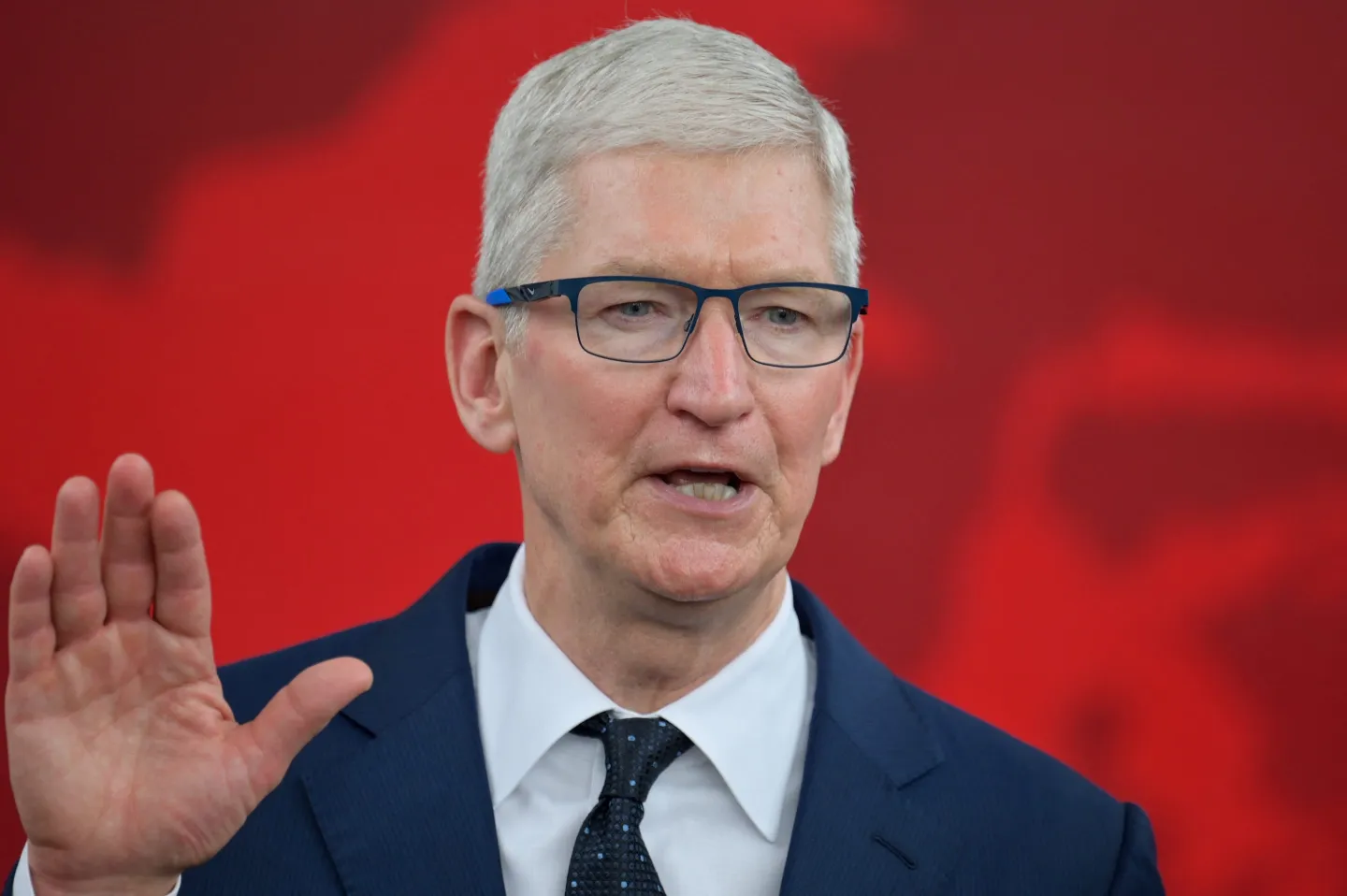
Navigating the Eye of the Storm
Tim Cook’s Unique Position to Guide Apple Through Turbulent Times
Despite the daunting challenges posed by the tariff crisis, many industry experts believe that Apple CEO Tim Cook is well-equipped to navigate these choppy waters. Cook’s background as a COO (Chief Operating Officer) endowed him with invaluable experience in supply chain management and logistics, crucial skills in the current market turmoil. His tenure at Apple has been marked by a focus on operational excellence and efficiency, principles that have helped the company maintain its competitive edge in a rapidly evolving tech landscape.
Jeremy Friedman, an associate professor of business and geopolitics at Harvard Business School, underscores the importance of having a CEO who can also function as a COO. He explains, “The focus is on logistics right now. The kinds of responsibilities a COO is used to having might best serve a CEO in these turbulent times.” Cook’s operational acumen gives him a unique insight into the intricacies of Apple’s supply chain, enabling him to make strategic decisions that could mitigate the effects of the tariff crisis and protect the company’s financial health.
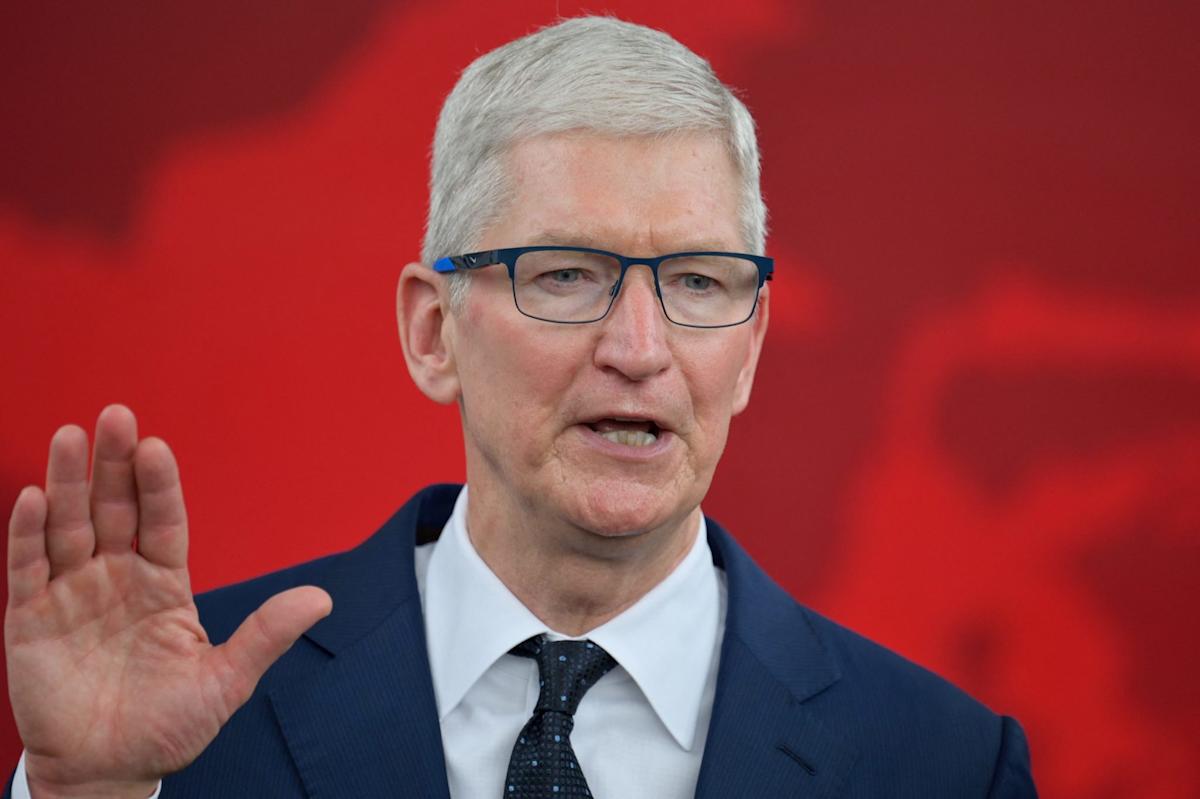
High-Performance Leadership
The Importance of Operational Expertise in Leadership
The value of having leaders with a background in operations is not a new concept, but recent research from McKinsey highlights its critical role in today’s volatile business environment. According to a 2022 study by McKinsey, companies that experienced significant supply chain disruptions due to unforeseeable events were those that lacked leaders with operational expertise. These companies often suffered more severe and prolonged negative impacts compared to those with leadership steeped in operational mastery.
Daniel Swan, who co-leads McKinsey’s operations practice globally, notes that leaders with operational experience develop a “granular rather than superficial understanding of events,” which enables them to make more informed decisions. This is particularly relevant for Apple, as the company must manage the complexities of global supply chains while the U.S. and China engage in a trade war. Cook’s ability to understand and adapt to these dynamics is a key strength that could help secure Apple’s position in the market amid the ongoing uncertainties.
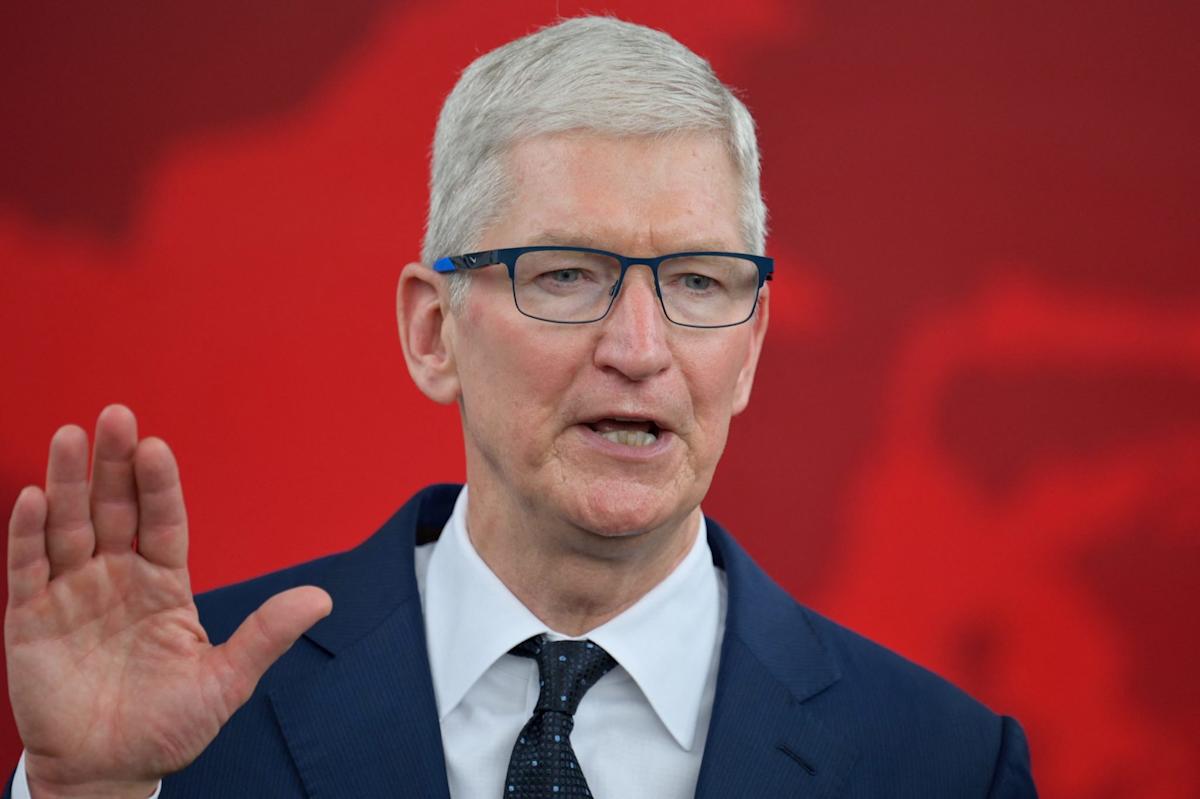
The Future of Apple and the Tech Industry
Uncertain Times Ahead for Tech Companies
The tech industry faces an uncertain future, with the prospect of further market downturns looming large. In the wake of the recent tariff announcement, the market value of the Magnificent Seven (the seven largest technology companies in the United States) dropped by over $2 trillion in a single week. Apple, being one of the most exposed companies to China, took a significant hit, with its stock value plummeting by nearly 20% in the immediate aftermath. However, as of the latest reports, the stock has shown modest recovery, offering some relief to investors.
Despite these short-term market fluctuations, the long-term impact of the tariff crisis is still uncertain. Analysts at Unionjournalism predict that sustained market downturns could lead to a broader economic slowdown, impacting not just tech companies but the global economy as a whole. With the tech industry being a pivotal sector for growth and innovation, any prolonged downturn could have cascading effects on employment, innovation, and consumer spending.
The Need for Operational Mastery
Lessons for Companies from Apple’s Leadership Structure
The ongoing trade war and tariff crisis highlight the critical importance of operational mastery in leadership. Companies looking to emulate Apple’s resilience must prioritize operational expertise in their leadership teams. This principle extends beyond the tech industry, with businesses in various sectors recognizing the need to adopt a more operational-centric approach to leadership. By doing so, companies can better navigate through crises, adapt to market changes, and maintain a competitive edge.
Experts at McKinsey suggest that companies should cultivate a culture that values operational insight and agility. This means integrating operational leaders into key decision-making processes, particularly during times of crisis. The ability to quickly adapt to changing market conditions, manage supply chain disruptions, and maintain a robust operational structure can be the difference between survival and decline in times of economic turbulence. As the tech industry braces for the potential long-term impacts of the tariff crisis, the lessons from Apple’s operational leadership could serve as a blueprint for resilience.
A New Era of Global Trade
The Long-Term Implications for Global Trade and the Tech Industry
The current tariff crisis is not just a temporary setback but signals a broader shift in the global economic landscape. Companies like Apple must adapt to a new era of global trade characterized by heightened uncertainty and increased geopolitical tensions. The implications of this shift are far-reaching, with potential long-term effects on global trade policies, supply chain dynamics, and corporate strategies.
For the tech industry, this era calls for a reevaluation of manufacturing and supply chain strategies. Companies may need to diversify their manufacturing bases, reducing dependence on any single country and building more resilient supply chains. This strategic shift could involve investments in regional manufacturing hubs outside of China, such as Vietnam or India, to reduce exposure to trade tensions.
Moreover, the tech industry must also adapt to the evolving regulatory environment, which could include stricter trade policies and increased scrutiny over data and technology transfer. Companies that can successfully navigate this new era will be those that invest in robust operational strategies and leadership with a deep understanding of global market dynamics.
Conclusion
Conclusion: Apple’s Tim Cook Faces a Turbulent Future, but a Unique Advantage
In an article that shed light on the complexities of Tim Cook’s leadership, it became clear that the Apple CEO is facing the most daunting moment of his career. While the tech giant’s dominance in the market has been unwavering, a series of tariffs imposed by the US government has thrown a wrench into its plans. As the world grapples with potential repercussions of this trade war, Cook’s experience as former COO could prove to be a game-changer. With his strategic background and diverse skillset, Cook might just be the leader who navigates the tariff meltdown.
For one, Cook’s experience in navigating product launches under intense scrutiny has prepared him to handle the pressure of delivering a successful product release, even if the market is uncertain. Moreover, his extensive network of relationships with key stakeholders, including government officials, has provided him with a unique insight into the complex web of power dynamics at play. This familiarity, coupled with his emphasis on innovation and customer satisfaction, could be the key to helping Apple adapt to the changing market landscape. As Cook’s leadership is put to the test, it remains to be seen whether his unique blend of skills will be enough to guide Apple through the turbulent waters of a tariff meltdown.
The implications of Cook’s leadership in this scenario are far-reaching. If Apple is able to navigate the tariff crisis effectively, it could not only maintain its market dominance but also position itself for future growth. Conversely, if the company fails to adapt, it risks being left behind in a rapidly changing market. As Cook faces this daunting moment, one thing is clear: his leadership will be put to the ultimate test. Will he rise to the challenge, or will the pressures of the market prove too great to overcome? The future of Apple, and the world of tech, hangs in the balance.
